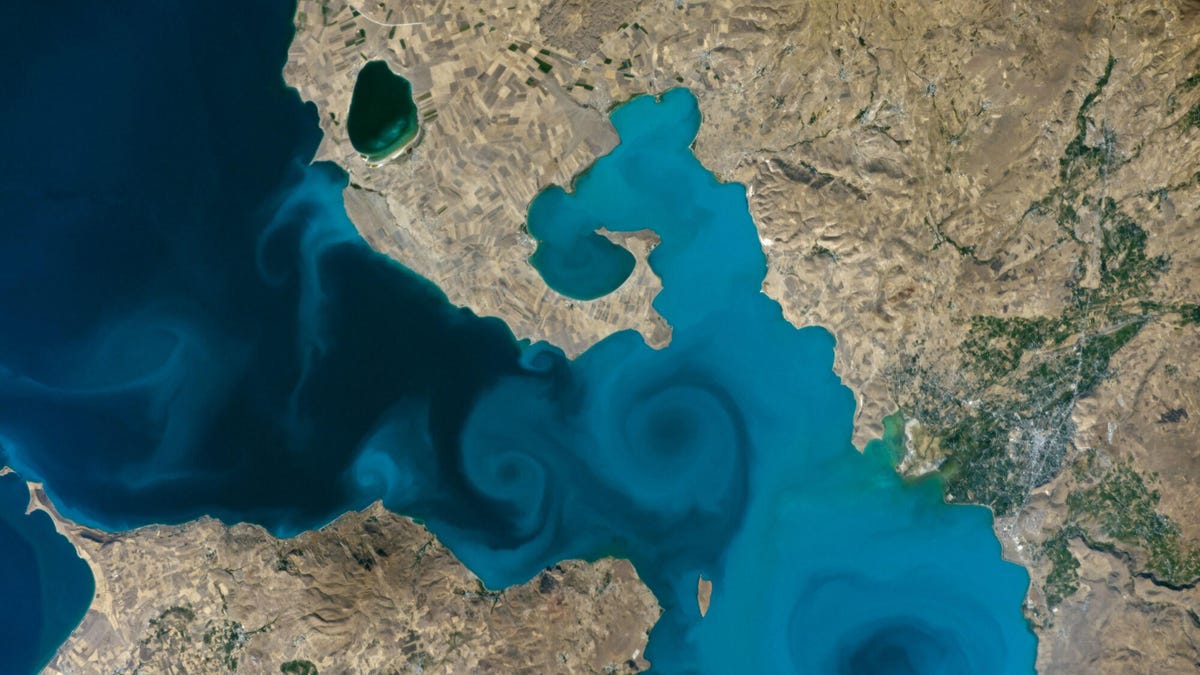NASA's astronaut Earth photography contest crowns a glorious winner
The votes are in: A lake filled with blue whorls beat out star trails to claim the championship.
There can be only one. NASA's Tournament Earth competition pitted 32 astronaut photographs of Earth against each other in a March Madness-style set of brackets. Space fans voted on their favorites, and the winner has been crowned: a stunning, swirling view of Lake Van in Turkey.
After over 930,000 votes cast during five rounds, the image snapped by astronaut Kate Rubins from the International Space Station in 2016 stood out among the rest. Lake Van is one of the largest alkaline lakes in the world, and it has an almost mystical appearance in the image.
"Lake Van is an endorheic lake -- it has no outlet, so its water disappears by evaporation -- with a pH of 10 and high salinity levels," said NASA in statement when the image was originally released. The space agency described the swirling blue areas as "turbidity plumes."
If this was March Madness, the photo would be considered an underdog winner. It was originally slotted in at a No. 8 seed in the "Tranquility" bracket, a reference to a module on the ISS.
It was a tough competition. Lake Van went head to head with the other finalist, a stunning composite image of stars in motion that shows star trails captured over several minutes from the ISS.
Every astronaut image in the competition was worthy, but there was just something about the sublime whorls of Lake Van that captured the hearts of the voters. After all, we are a water planet.
Follow CNET's 2021 Space Calendar to stay up to date with all the latest space news this year. You can even add it to your own Google Calendar.


